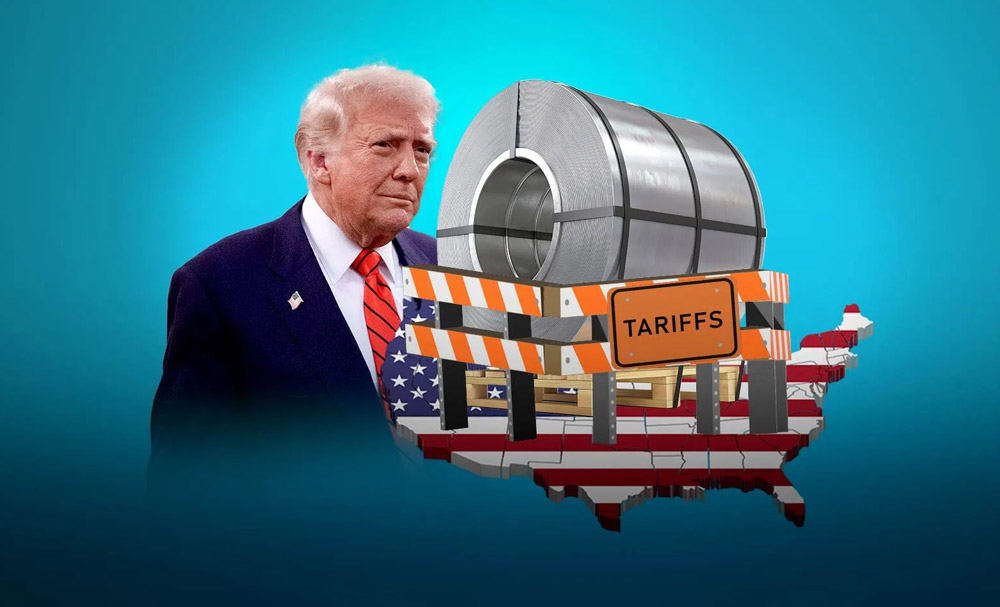The U.S. and Canada recently found themselves in a heated tariff skirmish, unsettling investors and roiling markets. On Tuesday, the White House doubled tariffs on Canadian steel and aluminum imports to 50%, following Ontario Premier Doug Ford’s announcement of a 25% surcharge on electricity exports to the U.S. However, cooler heads prevailed, and both nations temporarily suspended their trade war. Despite the resolution, the brief exchange highlighted the fragility of the relationship between the two neighbors and injected uncertainty into the markets.
Market Reactions to the Tariff Dispute
The short-lived trade dispute had an immediate impact on global markets. Investors, wary of escalating tensions, sold off stocks, pushing the S&P 500 into correction territory during Tuesday’s trading session. The index fell 0.76%, while the Dow Jones Industrial Average dropped 1.14%, and the Nasdaq Composite slid 0.18%. Analysts pointed to the ongoing volatility as a reflection of growing concerns over a potential recession sparked by trade disputes and inflationary pressures.
Global Markets Face Mixed Responses
The ripple effects of the U.S.-Canada tensions were felt across the globe. In the Asia-Pacific region, Japan’s Nikkei 225 managed a modest gain of 0.07%, buoyed by a 0.6% rise in Nissan Motor shares after CEO Makoto Uchida announced his upcoming resignation. However, China’s CSI 300 declined by 0.35% as bond yields climbed, signaling broader concerns in the region.
U.S. Inflation Data in Focus
Adding to the market’s unease is the anticipation of the U.S. consumer price index (CPI) report for February, which is projected to show a 0.3% increase for both the core and all-items measures. On an annual basis, headline inflation is expected to hit 2.9%, with core inflation at 3.2%. These figures, if realized, would represent a slight cooling from January but could still fuel debates over the Federal Reserve’s next steps on interest rates.
Broader Implications of Tariffs
The U.S. and Canada’s brief spat is part of a larger trend of trade tensions under the Trump administration. On Wednesday, a 25% tariff on European steel and aluminum imports went into effect, prompting the European Union to announce counter-tariffs on $28.33 billion worth of U.S. goods starting in April. These actions reflect a global environment rife with protectionist policies, which analysts warn could stifle economic growth and exacerbate recession risks.
The Path Ahead
While the U.S.-Canada trade tensions have cooled for now, the broader implications of protectionist policies and market volatility remain a cause for concern. As the world watches how inflation data and further tariff developments unfold, investors and policymakers alike will need to navigate an increasingly uncertain economic landscape.











